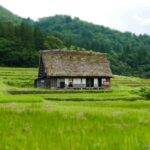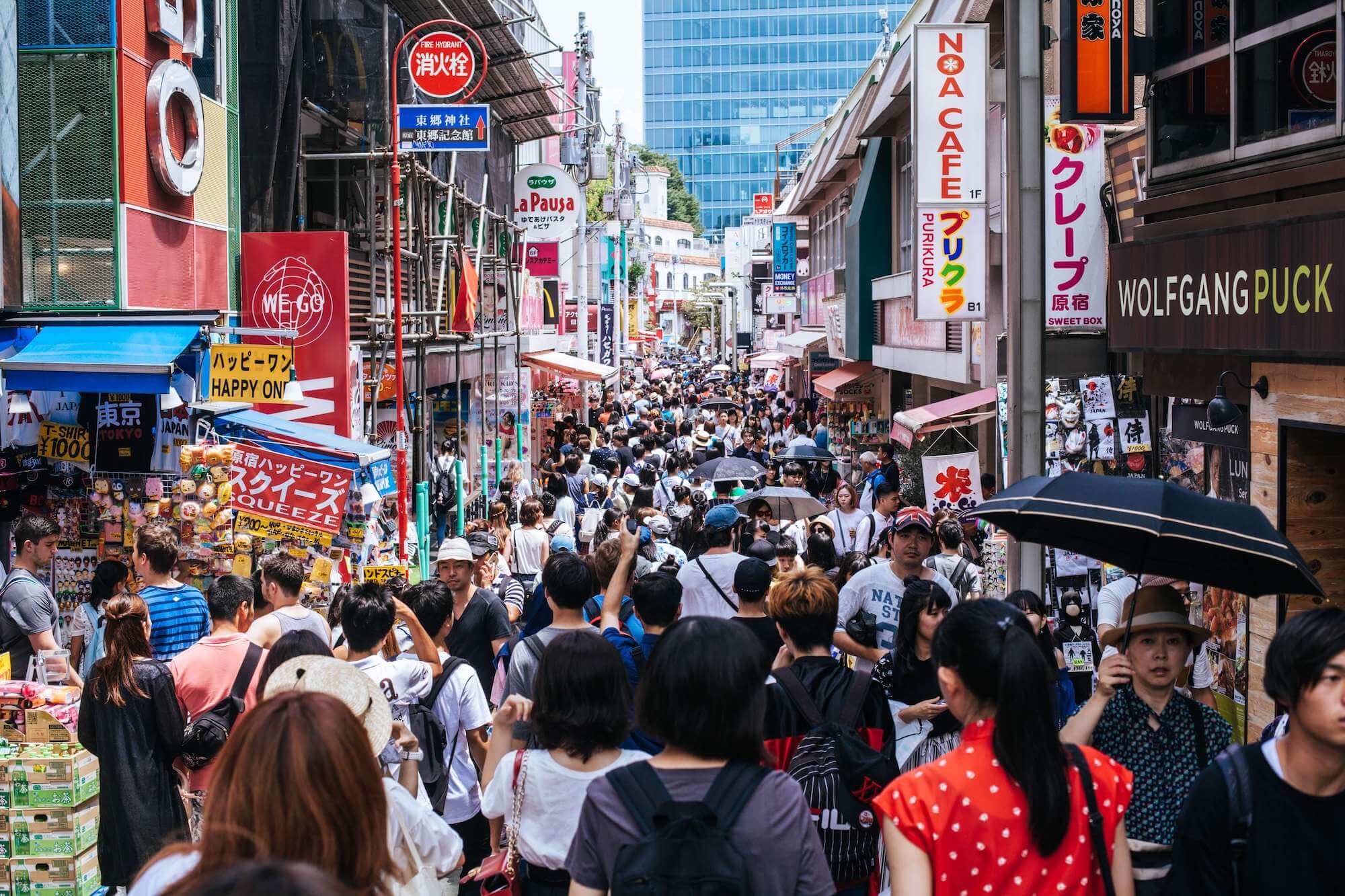Thinking about packing up and teleworking from the countryside or applying for a job in rural Japan? Here are some tips from Matt Heron for living in the countryside.
Table of Contents
The Beautiful Japanese Countryside
Many people think of Japan as a place with futuristic cities, tall shining buildings. But the countryside is just as beautiful. Japan is so diverse that there are many different types of scenery to explore, but they are often overlooked when people travel here or decide to move here.

Most small Japanese countryside towns are likely to be nestled at the base of local mountains near a river.
The Japanese countryside, much like the diverse landscapes of Borgarnes Iceland, includes mountains, rivers, forests, rice fields and more all in one place. It’s a very different experience than what you’ll find in the city. Japan’s countryside is a beautiful, but often overlooked part of the country. The lush landscapes and natural resources in the rural areas are not something you’ll find in cities.
The countryside has its own charm and culture that you won’t find anywhere else in Japan or the world. If you want to know more about it then keep reading!
Read also:
What are the Benefits of Living in the Japanese Countryside?
A lot of people interested in coming to Japan think that only city life is good. But in reality, living in the country also has a lot of benefits, such as nature and fresh air. I won’t deny that the city can be very convenient and that if you’re drawn to the hustle of the city and the bright lights, maybe the countryside is not for you. However, if you’re looking for something a little different, let’s talk about some of the things you can get from the Japanese countryside that the big cities just can’t offer.
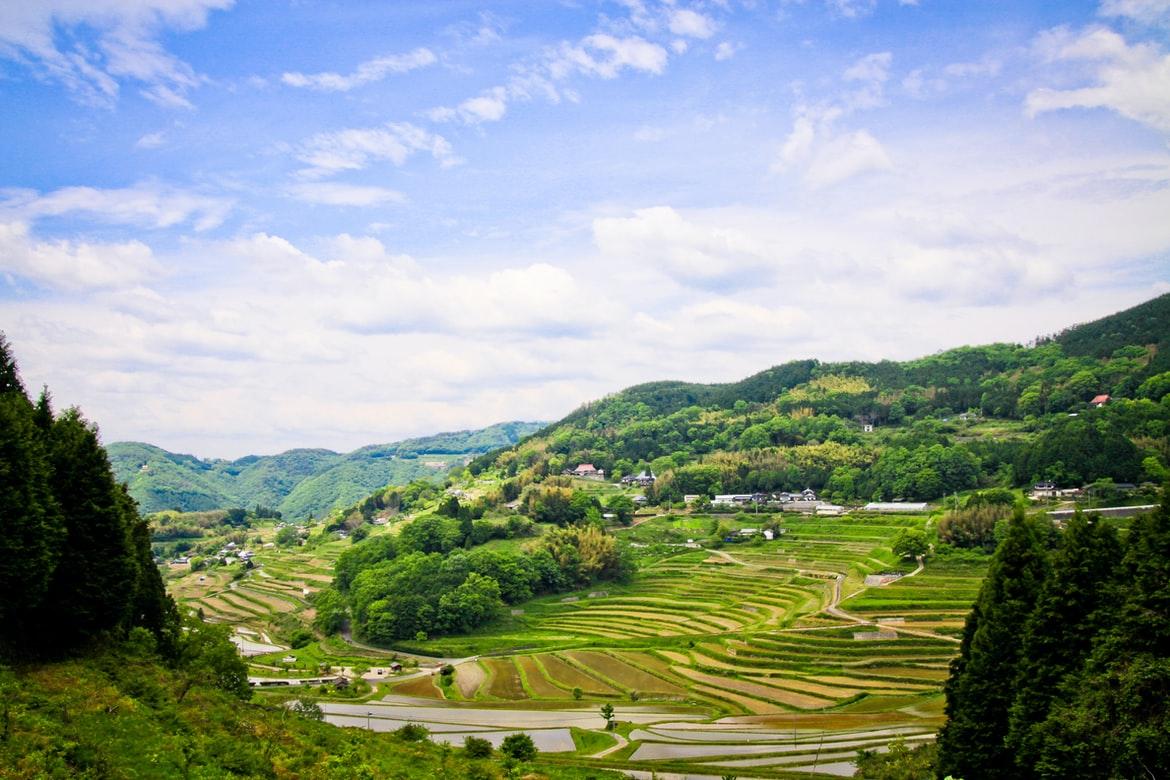
Green mountains, blue skies…. I’ll take it.
Some people want to live in the countryside because they can spend more time with nature and take care of animals. While finding apartments that will accept pets anywhere in Japan can be a bit difficult, it may be easier in the countryside and there will certainly be more opportunity to buy your own home where you can have any pet you’d like (I have literally seen a man walking an emu in Koka, the famous ninja village). If you’re looking for a place with less pollution, clean fresh air, and countless rivers, then the countryside may be the best place for you to live.
A similar advantage is that you may have greater access to outdoor activities if that is something you enjoy. Japan is a mountainous country and a popular pastime for many Japanese people is hiking. While you can still do this if you live in Tokyo, it may require a day trip out of the city. Some other cities will have mountains around them so this is still quite easy. For example, I split my time between the countryside and Kyoto, and Kyoto is surrounded by mountains. Going for a hike is not a challenge. Finding as many natural untouched rivers, waterfalls, or hidden temples, not so easy even in Kyoto.
While I could go on and on about other benefits of the countryside over the city, I’ll leave you with one last big reason. I think living in or even just visiting the Japanese countryside can give you one of the most authentic Japanese experiences. A lot of life in the big cities has been influenced by tourism and as fun and interesting as it is in its own right, it’s not necessarily a true reflection of normal Japanese life. Chances are, if you are living in the countryside of Japan, you will be interacting with everyday Japanese people, visiting temples or shrines that only the locals visit. You will be eating at restaurants run by a family where all the locals go.
The big cities definitely have their benefits and can be fun and exciting, but nothing beats the authentic experience you can get in the Japanese inaka (countryside).
Read also:
What is it (really) like to buy a Japanese Abandoned Akiya Home
What are some Challenges of living in the Japanese countryside?
With all the great things about rural life in Japan, there are of course some downsides. The biggest being convenience. This of course depends where you live as many rural towns are still easily accessible by train and bus, but many areas have very limited transportation options and you may actually be located kind of far from the nearest station. You’ll find most people in the countryside owning a car, much like rural areas in other countries. Of course, this is an extra expense and requires you to get a drivers license in Japan (possibly a simple switch if you have a drivers license in your home country – check here).
Another big challenge you may find is language. Perhaps your Japanese is great and this is no problem, but if not, you may find it less convenient than in the cities. Fortunately, the Google translate app is your best friend, and you will still find some things in English. Conversation will likely be the biggest hurdle, especially with ba-chan and ji-chan (“grandmas” and “grandpas”). They can be super nice, but the Japanese they speak may not be as easy to understand and if you don’t understand, there’s a good chance they will just keep talking. To turn this into a positive though, it is definitely a great place to improve your Japanese. I know living in some cities it is easy to create an English bubble for yourself, in a rural area, you may be forced to learn Japanese just through daily life.

One final downside to countryside life… it’s dying. There will always be rural towns in Japan, but Japan’s population is declining and more and more younger people are moving to larger cities for work opportunities and a more convenient lifestyle. I have seen a number of areas that seem to be getting more and more sparsely populated. You may have heard the story of a train station that remained open for 1 final high school student still living in that town (Read the story here) and closing after she finished school. This is just one example of the potential challenges of the “dying” countryside. If you are ok with driving and being self-sufficient, it may not be an issue, but I have personally seen convenience stores closing in small towns. Japan’s pinnacle of convenience is having a hard time sticking around in some of these places.

For some people these challenges are what draws them to the countryside, but if you’re debating between city life and rural life in Japan, these are a few things to consider.
Is it Possible to Move to the Countryside of Japan?
The short answer is Yes, it is possible to move to the countryside of Japan.
The slightly longer answer is, of course you can move there, but you will need to sort out your income and the visa situation assuming it applies to you. Many foreigners are drawn to the cities in Japan for a few reasons, but the biggest being that many people (at least at first) come to teach English, work in IT or tech jobs, with more of these jobs being available in larger cities. Although, if you are coming to Japan for the first time to teach English with the JET program (or other similar ALT companies), there is a good chance they will put you in the countryside anyway. If your company sends you to work in the countryside, it is quite simple to deal with your income and visa, if you are choosing to make this move on your own, employment options may be limited as well as how to get a proper visa sponsored.

Once you have made the decision to move to the countryside, the first step would be to either find a home in a rural area that you like and can afford or a job. This will of course depend on your specific situation as to which comes first. Often in Japan, your job may determine your living situation, but I think many non-Japanese prefer to find a job that fits with the life they want to live.
If you need to find a job in a rural area, it may seem difficult at first, but there can be many jobs available for people who are willing to relocate and work in rural areas. There are job boards online and you will actually find many posted in Facebook groups online. You may be limited in the types of jobs though as they often seem to be either English teaching or some type of factory line job. There are other possibilities, but the biggest concern is a job that will sponsor your visa (assuming you don’t have one). The local shops are likely not an option unless they can justify why you as a non-Japanese need to be working there instead of a Japanese person and what special skill you bring to the business.
The third step would be learning the language and customs of your new countryside home. I suppose this would be optional, but as with almost anywhere, people in the countryside tend to be more friendly and there is more of a sense of community, unless you want to be left completely alone, making connections with the people living around you is not a bad idea.
Ok, so how do I actually move to the countryside?
This will depend on your exact situation, but assuming you have some freedom of choice, let’s consider what kind of life you want. You can ask yourself a few questions: Hot or Cold, Mountains or Ocean, Nearby Cities or Middle of Nowhere? Much of Japan is relatively similar. It’s a beautiful mountainous island country, but let’s say for example you chose Hot, Mountains, Nearby Cities from the above. Well, maybe I would suggest living near Kumamoto close to Mt. Aso (Japan’s largest volcano). Located in the South of Japan, it will be much warmer and you will be close to Kumamoto and Fukuoka. Alternatively if you like the Ocean, Cold and Middle of Nowhere, maybe consider the coastal areas of Hokkaido or Akita prefecture.
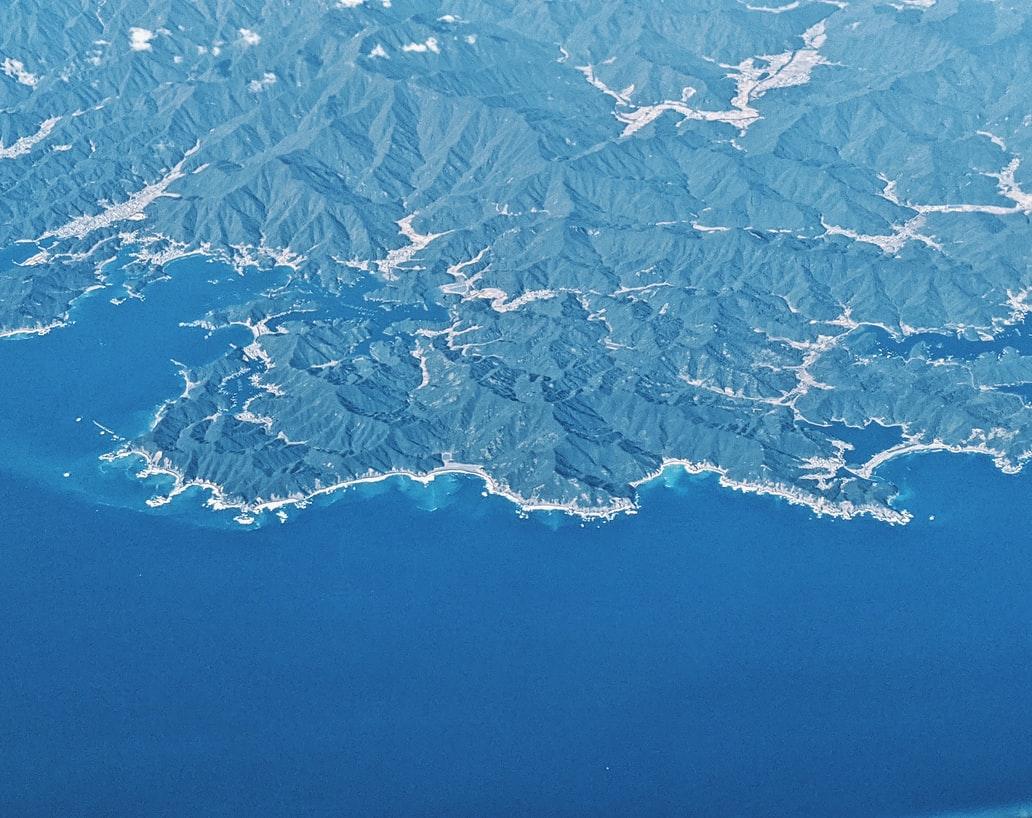
Now that you’ve thought about where you want to live using websites such as suumo.jp. You can look for jobs via online job boards, but one of your best bets would be local Facebook groups, or local government websites. Some areas have programs to help people move to their smaller towns – here is an example. These town websites may or not be helpful, but at the very least it can help you become familiar with the area and start making connections.
What are the Costs Involved with Migrating to Rural Japan?
Typically, the cost of living in rural Japan is lower than in major cities. This can be an attractive prospect for people who are looking to save money. However, there are many other factors that should be taken into account before making the move. For example, the cost of transportation might be higher due to distances between towns and cities. Likewise, it can be more difficult to find a job or or the above things mentioned.
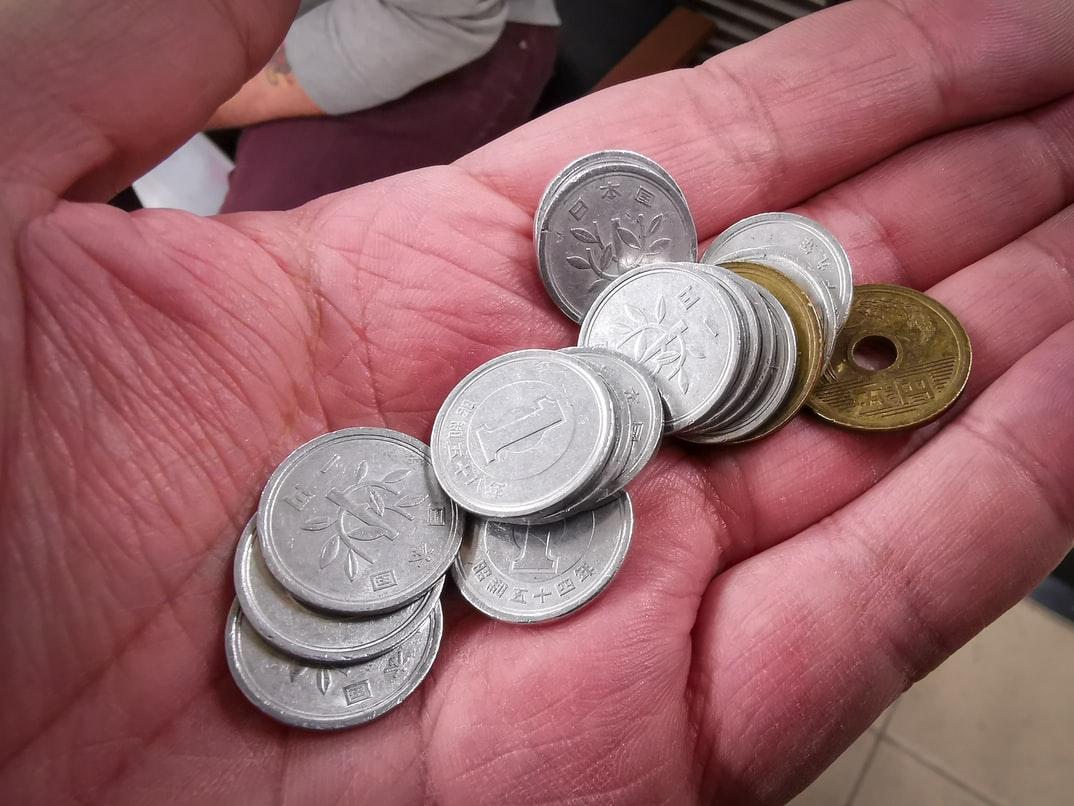
Otherwise, some unexpected costs may be that you might need a car which obviously has some extra costs associated with it. You may also find yourself in an older apartment or house. These also exist in bigger cities, but may be more common in the countryside. The extra cost might come in the form of your utilities. You may be spending more to heat or cool your home simply because the insulation is not as good and the appliances may not be as new and inefficient if they came with your apartment / house (although they often don’t). In the cities, most homes or apartments have city gas, but it is not uncommon for country homes to use propane gas instead. This can require a contract with a company to come and regularly handle your refueling of propane.
Depending on where you are or what your situation is, there may be a fee for living in the community, similar to a homeowners association. There could be a monthly or annual fee paid to the local government or community meant for events or general upkeep. I personally don’t have experience with this, but I have seen it mentioned in some property listings in some areas.
Conclusion & Resources for people wanting to move to the Japanese Countryside
There are many reasons why one might want to move to the countryside of Japan. It may be for work, for a change of scenery, or just because you are tired of the hustle and bustle of city life. Whatever your reason, there are many benefits that come with moving to the countryside.
I have personally lived in both cities and small countryside towns in both Canada and Japan. There’s really not so much of a difference. Both are less convenient, people are generally more friendly in the countryside and nature is more abundant. Obviously the biggest challenge of living in the Japanese countryside is the language. If you’re looking to really integrate into the community, it could be a challenge. There is a decent chance you will always be seen as the foreigner, but that’s not much different from the cities in Japan as well. It’s also not necessarily a bad thing, it can be an interesting conversation starter to help make friends in the countryside. If you’re not sure the city life is for you, I would strongly consider living in the countryside of Japan, it really is a different and wonderful experience to city life.
The article concludes with a list of resources that people can use when they want to move to the Japanese countryside. These resources include websites, blogs, and books on how to get started in moving to the Japanese countryside.
So time to pack your bags and enjoy the beauty of rural Japan!

I mean, the Japanese countryside is beautiful right?
Japan Home Search
Japan Prefecture Website List (here you may find information about government assistance programs for moving to the area, but you can also search for specific towns)
Be sure to follow us on Facebook, Instagram, Twitter, and Pinterest for more fun stuff!

Matt Heron
With an unending fascination for the nuances of Japanese culture, Matt is a Canadian who's been exploring the Japanese countryside and experiencing Japanese daily life. With long-term plans to stay in Japan he started SpringSakura.com and has taken particular interest in traditional craftworks and sharing real Japan with others. .




